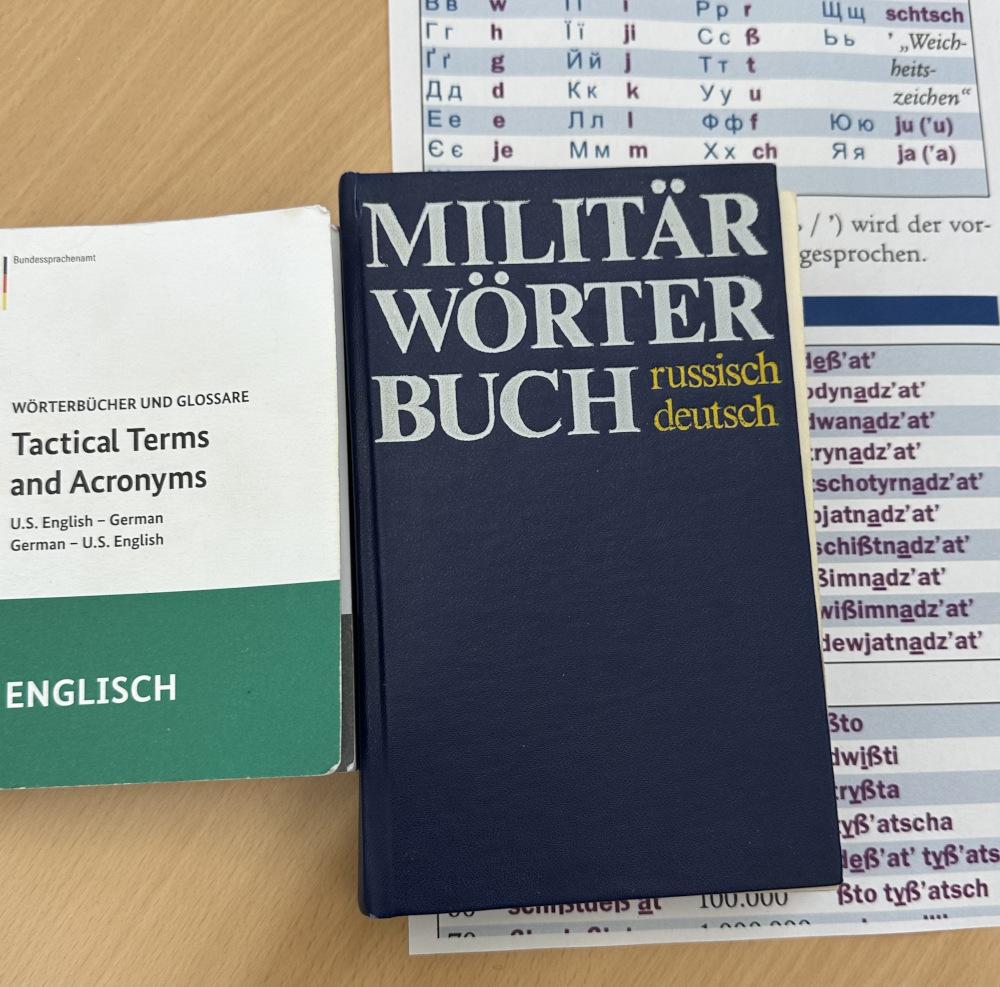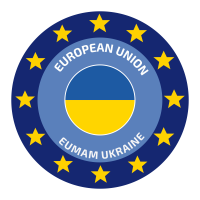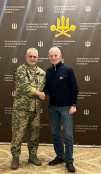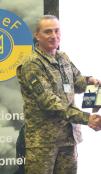The language of war - translating for the training of the Ukrainian armed forces

Oleg, what does war mean in Ukrainian? “It's pronounced Viyna (Війна),” says Oleg.
The young man is a translator for an Ukrainian officer within the staff of the Special Training Command (ST-C), the German HQ of EUMAM Ukraine providing training to the Ukrainian armed forces.
"Viyna" sounds almost cute to German ears. However, war means death and destruction. Every day for almost a year since the 24 Feb 2022, when Russia invaded Ukraine.
Oleg, how many times have you had to use the word? "Unfortunately far too often. And the words are fallen and wounded. I try to deal with it professionally, but I'm human and I have compassion."
"Translators are the key personnel for the training," says the Chief of Staff of ST-C. After all, most of the soldiers who come out of the war and return there afterwards do not speak German. English is also not widely spoken. Therefore, there is no alternative to translate into Ukrainian or Russian.
Dozens of people like Oleg are these days climbing into combat vehicles or other military equipment together with the trainers and trainees, everywhere in the training facilities in Germany. They form the linguistic bridge so that the Ukrainian soldiers can later use their systems in the battlefield.
Oleg, how to become a translator in ST-C? The Private was one of the first to take on this task. First as a holiday replacement, but he has not left his Ukrainian comrade's side since November. Having grown up with German roots in the Ukraine, he came to Germany around 20 years ago, became a German citizen - and an infantry soldier in the Land Forces. "I'm always aware of my great responsibility," says the young man with a serious look.
And so he supports the officer from the oppressed country for up to twelve hours every day. Starting with "military latin" - with terms like equipment, reconnaissance, approach - to political translations. When, for example, high-ranking visitors want to know from the Ukrainian comrade how he assesses the situation at home.
And what does he say about the importance of Oleg's translation? “Not only can the fate of a person depend on the correct translation, but also that of a country.”
Oleg also translates that into German.
Then they continue with "Viyna". With the war.




